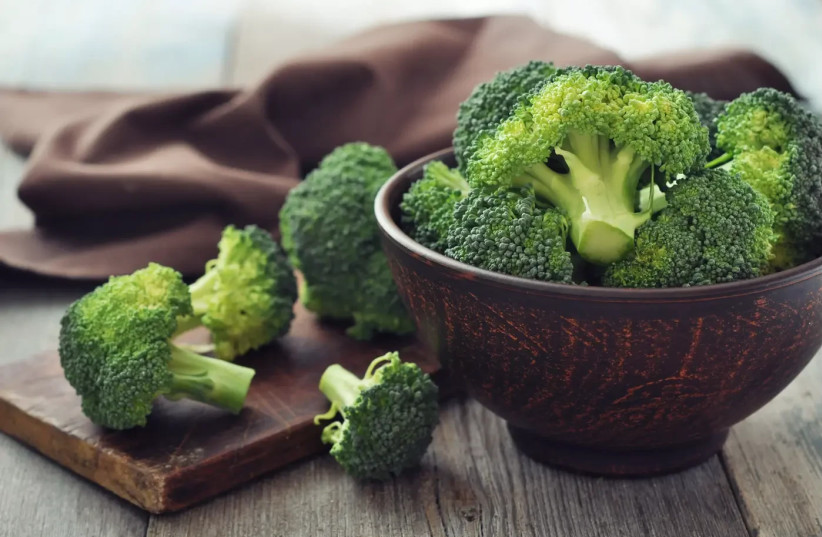Jerusalem Post
ByDR. MAYA ROSMAN
Why do leafy greens increase serotonin, how is broccoli more calming than chocolate, and why can one banana a day change how you feel when overwhelmed by a harsh reality?
In times of stress, uncertainty, or anxiety – many of us are drawn to comfort foods: Soft, sweet, familiar carbohydrates. It’s natural. The body needs readily available energy, and the brain seeks comfort through chocolate, cookies, or pasta.
But precisely on such days, it’s important to remember that vegetables also play a significant role – not just in maintaining overall health, but in helping the body cope with stress and pressure, and in supporting emotional regulation.
In addition to the energy from carbohydrates, the body needs essential vitamins and minerals – some of which are found only in vegetables – especially those that influence the nervous system, the production of serotonin and dopamine, the proper functioning of the adrenal gland, and the reduction of inflammatory processes that worsen physical stress.
Even if you're not in the mood for “a full salad,” it’s worth incorporating even a little – cubes, sticks, a small soup, or a modest colorful addition to your plate. So which fruits and vegetables are really worth including on your plate during stressful days? As the scientific advisor to the Plant Council, here are the five most important choices – including the unique impact of each:
1. Dark Leafy Greens
Leafy greens such as kale, baby leaves, spinach, Swiss chard, or arugula are especially rich in magnesium – an essential mineral directly linked to muscle relaxation, blood pressure regulation, and nervous system balance.
In stressful situations, magnesium levels in the body drop – and that’s exactly when the need for it increases. Additionally, leafy greens contain folic acid (vitamin B9), which helps in the production of serotonin – a neurotransmitter that induces a sense of calm.
2. Broccoli
Especially broccoli, but also other cruciferous vegetables – are rich in vitamin C, antioxidants, and alpha-lipoic acid – which help the body cope with oxidative processes that worsen during chronic stress.
Vitamin C also supports the adrenal gland, which produces the stress hormones cortisol and adrenaline. Among all cruciferous vegetables, broccoli has the lowest impact in terms of causing bloating and gas.
3. Carrots and Orange Vegetables
Orange vegetables like carrots, sweet potatoes, and pumpkin provide beta-carotene – a powerful antioxidant that the body converts into vitamin A, crucial for immune system function. They’re also naturally sweet, providing a calming feeling without causing sugar spikes like processed sweets.
Sweet potato, for example, is an excellent carbohydrate that also offers dietary fiber and has a low glycemic index, helping to balance blood sugar levels – a natural way to prevent energy crashes.
4. Avocado
Avocado is an excellent source of B vitamins (especially B6), which are important for proper nervous system function and the production of dopamine and serotonin. It also provides monounsaturated fat – a healthy fat that supports stable blood sugar levels, sustained satiety, and even hormonal balance.
5. Banana
A fruit that truly deserves a place of honor thanks to its high content of tryptophan (the amino acid that is a precursor to serotonin), as well as magnesium, vitamin B6, and potassium. This combination calms the nervous system, helps regulate blood pressure, and improves sleep quality.
One banana a day can significantly improve your mood when feeling overwhelmed – especially when combined with oats or a handful of nuts.
In summary – there's no need to give up comforting carbohydrates – but don’t forget the calming power of fresh fruits and vegetables. Even a small addition of broccoli to lunch, leafy greens in a smoothie, or baked sweet potato cubes – can make a big difference for your body, and especially your mind.

















